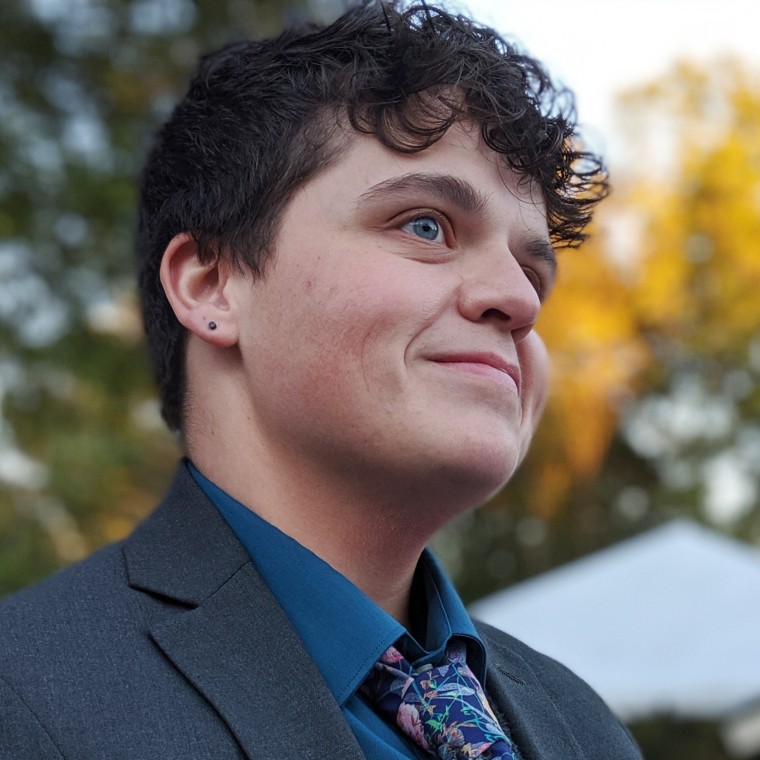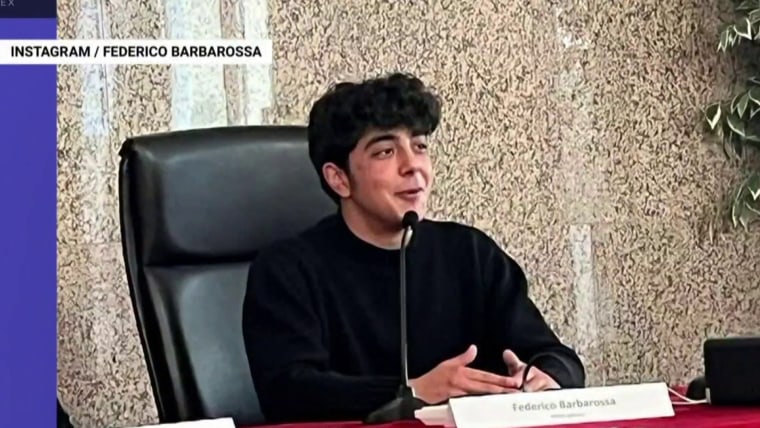The first time Toni Atkins acted as the governor of California, she used her powers to honor the passing of San Diego Padres baseball player Tony Gwynn while playfully rebuffing Jimmy Kimmel’s advice that she “invade Oregon. ”
It was 2014, and Atkins — the first lesbian to be the speaker of the state Assembly — was filling in for former Gov. Jerry Brown, a quirk of the California Constitution that requires governors to put someone else in charge whenever they leave the state.
Atkins, now the president pro tempore of the state Senate, has filled in as governor a few more times since then, most recently in July when she signed three bills into law and quipped that she was thrilled to once again step into the governor’s shoes, “ although I have better shoes. ”
“I’m very interested in looking at that possibility” of running for governor, Atkins told The Associated Press in an interview, saying publicly for the first time what many have assumed since she announced she would step down as the Senate’s top leader next year. “I am looking at it seriously.”
The race to replace Gov. Gavin Newsom will likely be a Democratic free-for-all sure to attract the party’s top talent for the chance to lead the nation’s most populous state and the world’s fifth largest economy. California voters have never elected a woman to the governor’s office, nor a person who is openly LGBTQ. And a host of other Democratic candidates are also vying to make history.
Lt. Gov. Eleni Kounalakis was the first to formally announce her candidacy just a few months into Newsom’s second term. Tony Thurmond, the Black state superintendent of public instruction, is also in, along with former Controller Betty Yee. Attorney General Rob Bonta, who is Filipino, has said he is seriously considering a run.
But Atkins is banking on her experience to give her an edge. That includes a brief stint as mayor of San Diego, one of the nation’s largest cities. And it includes becoming just the third person and first woman ever to hold both of the Legislature’s top jobs: speaker of the Assembly and president pro tempore of the Senate, where she negotiated eight state operating budgets and had her hands in countless major policy decisions.
“I sort of feel like I’m addicted to responsibility,” she said. “I think experience counts and matters, and I believe I have experience to continue to contribute in some way.”
California’s top legislative leaders are some of the most powerful people in the state, but it often doesn’t feel like it. While they negotiate major polices, it’s the governor who gets the attention when the deals are done.
That’s especially true for Atkins, who has been a more quiet leader than most. During her tenure as Senate leader, Democrats have grown their caucus to 32 out of 40 seats — their largest majority since 1883. That majority means there is little incentive to work with Republicans. But Atkins made sure Republicans had their bills heard in public hearings and even pushed for former Republican Leader Shannon Grove to be included in briefings with the Newsom administration.
“She always included us and there was never any surprises. I didn’t agree with what was going on, but we had input and participation,” said Grove, who noted she and Atkins bonded over their impoverished upbringing and a shared love of country music icon Dolly Parton. “She understands that we represent a portion of Californians as well and we were duly elected and therefore our voices should be heard.”
Atkins grew up in rural southwest Virginia, where her dad was a miner and her mother was a seamstress. Her childhood home did not have running water, and some of her earliest memories are of walking down a hill with her twin sister to fetch water from a spring to use for cooking and doing laundry.
As a young lesbian in Appalachia, Atkins dreamed of moving to California. She got her chance when her twin sister joined the Navy and was stationed in San Diego. Atkins moved there to help care for her sister’s young son, and never left.
In San Diego, Atkins was director of a women’s health clinic that performed abortions. She was also politically active, working to help elect Christine Kehoe to the San Diego City Council. Kehoe hired Atkins to work for her, and then urged her to run for her seat when Kehoe was elected to the state Assembly.
“Toni is not the kind of person that wants to be the smartest person in the room. She wants to be the most helpful and effective person in the room. And oftentimes she is,” Kehoe said.
Atkins followed her mentor to the state Legislature in 2010, where she soon found herself in a contentious race for speaker against Anthony Rendon of Los Angeles. Atkins won, but left after two years to run for the Senate.
It wasn’t long before Atkins was selected by her colleagues to lead the state Senate, forcing her to work with Rendon, who had replaced her as speaker in the Assembly. Their relationship was rough at times, but fruitful for Democrats. Their partnership expanded Medicaid to include all eligible adults regardless of immigration status and free meals for public school students.
“We had problems, but I think it was, you know, related more to ambition than anything and, you know, probably to an extent immaturity on my part, too,” said Rendon, who plans to run for state treasurer in 2026. “Toni Atkins is a very forgiving person. I have not always been the easiest person to deal with. But she, you know, kept coming back and trying to forge a relationship.”
Atkins said she is most proud of the policies that were inspired by her impoverished upbringing, including helping implement the federal Affordable Care Act and creating a tax credit for poor families worth several hundred dollars.
Those wins are part of what’s driving her potential run for governor, too.
“I see what you can do when you’re in that role,” she said. “There is something about being at the table.”


